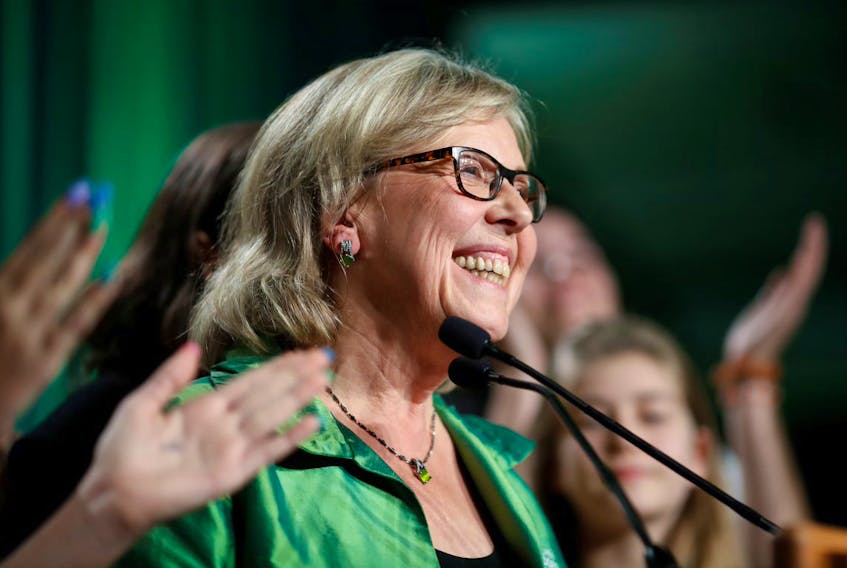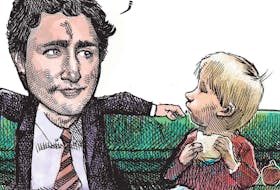ANTIGONISH, N.S. — ANTIGONISH, N.S. — One of the hottest topics of discussion since last month’s federal election has been the future of Conservative Party leader Andrew Scheer.
And, more specifically, who could replace him, with former Central Nova MP Peter MacKay topping many lists of potential candidates.
“I am surprised at how quickly things began to unravel for him,” St. F.X. political science professor Jim Bickerton said of Scheer.
Despite his effort “to frame the (election) results in positive terms,” he added, almost immediately, discontent started to bubble.
Although the Conservatives gained seats and won the popular vote, Scheer has been saddled by the expectations of some, including him, that the party could “win back power” or at least capture the highest number of seats in a minority situation.
MacKay, who had already been at the forefront — when it comes to potential replacements for Scheer, drew further attention a couple weeks ago when he answered questions about the Conservatives’ performance.
“Yeah, to use a good Canadian analogy, it was like having a breakaway on an open net and missing the net,” MacKay told the crowd, while answering questions during an appearance at the Canada Institute in Washington.
He also talked about how the effort of the Liberals to make the campaign about social issues — such as abortion and same-sex marriage — and Scheer’s beliefs about them hung around his neck “like a stinking albatross.”
A few hours later, MacKay clarified his comments, saying they targeted the party’s performance, while noting his support for Scheer throughout the campaign.
“He chose his words very carefully,” Bickerton said of MacKay.
The Pictou County native also denied — and continues to do so — that there is a movement afoot, financially and otherwise, to mount his push for the leadership, when and if a party race takes place.
“He knows the dynamics of leadership changes,” Bickerton noted.
He said, when Mackay helped broker the creation of the Conservative Party — with the merger of the former Progressive Conservative and Canadian Alliance parties, he “read the tea leaves” and decided not to vie for the leadership.
“Peter played the good soldier,” Bickerton said of his time as a “very high profile” MP and federal cabinet minister under Prime Minister Stephen Harper.
With his experience in these types of situations, Bickerton said MacKay should have a handle on “the right time to jump,” if there is a leadership race down the line.
He added the former MP decided it wasn’t the right time in 2015 for a variety of reasons, including wanting to spend more time with his young family.
“Now, if it happens, it might be the right time,” Bickerton said of a potential MacKay leadership run.
He noted one key factor that may influence his decision is lack of opportunity to throw his hat in the ring “for a long time.”
May’s legacy
When it comes to Green Party leader Elizabeth May announcing she was stepping down, Bickerton said “she probably picked the right time.”
Throughout the federal election, he noted, May had hinted she was “unlikely to stay on,” especially for another campaign.
“It may have happened a bit more quickly than some thought,” Bickerton added.
He suggested that timing may have something to do with her possible interest in becoming Speaker of the House, a position that is determined by an open vote by Members of Parliament (MPs).
In recent media reports, May has indicated she had thought about vying for the role, but has decided to sit with her other Green MPs in the House.
Noting there was “a lot of optimism” for the party heading into the federal vote, with some polls putting them neck-and-neck with the NDP in popularity, Bickerton talked about how that did not translate into results, particularly when it comes to elected MPs.
If the party had done better, Bickerton suggested, May probably wouldn’t have stepped down.
“There has also been a sense of growing restlessness,” he said of rumblings for a leadership change, which may also have factored into May’s decision to step down after 13 years.
When it comes to her legacy, Bickerton said she “deserves a tremendous amount of credit,” including for helping give the Greens a higher profile with her strong personality.
She also, for the most part, led a great deal of “reasoned discussion” on issues with a non-partisan approach.
“She has gained great respect for working and cooperating with other parties,” Bickerton noted.
In years to come, he suggested May will be recognized for “trying her best to sound the alarm bell,” when it comes to the urgency of climate change.
“I think people will realize they didn’t listen and react as much as they should have,” Bickerton said.
Describing the initial steps as “very good ones,” he noted May and the party have laid the groundwork for a “smooth transition,” including scheduling enough time before the party leadership vote next October for prospective candidates to deliver their message to members.
“I think there will be a generational change,” Bickerton said, in predicting the new Green leader will be younger.
Bickerton said no matter who takes over as leader the Greens should “not solely measure success on winning seats.”
He added their victories can also be taken from “changing the terms of debate,” while influencing other parties and advancing its environmental agenda.
“It is about them having an impact,” Bickerton said.
Testing Trudeau
A few weeks removed from the minority victory for Prime Minister Justin Trudeau and the Liberals, Bickerton reflected on the result and what Canadians could expect moving forward.
"It is a familiar result,” the St. F.X. political scientist said, noting there have been 14 minorities elected in the past 100 years, which accounts for more than half of the federal elections.
Noting that is rare, considering the first-past-the-post system used in Canada, Bickerton suggested it reflects the regional divisions across the country.
“It is a strong minority but there will still be challenges,” Bickerton said.
He added it will be a “test for Justin Trudeau,” noting he will need to focus greatly on diplomacy and cooperation.
“The people around him will be important,” Bickerton said, noting the need for bringing “experienced” Liberals on board.
Even with the strong minority, he described it as a “weak position,” considering the party only garnered 33 per cent of the popular vote – the lowest for a federal election winner – there is work to do.
Even though the Liberals maintained their strength in southern Ontario, Quebec (despite the Bloc’s surge) and, of course, Atlantic Canada, Trudeau has a “huge challenge,” when it comes to the west, especially Saskatchewan and Alberta, where there are no party MPs.
“In a way, he brought it on himself,” Bickerton noted of Trudeau’s broken promise from the 2015 campaign to move forward with electoral reform.
If that had taken place, the Liberals would have members in those two provinces.
And, with his move to a non-partisan Senate, he no longer has the option of appointing a western cabinet minister from that pool.
“He has boxed himself in so to speak,” Bickerton said.
He added it will be “interesting to see how the Liberals reach out to the west.”
Because of the overlap with the Greens and NDP, when it comes to policy, Bickerton predicted that will provide early stability for the minority Liberal government in the House.









